Mechanical
Mechanical refers to the physical processes and movements involved in the functioning of living organisms. In biology, the term is often used to describe the mechanics of how organisms move, support themselves, and carry out essential life functions. The study of mechanical processes in biology involves understanding the principles of physics and engineering as they apply to living systems.
Key Concepts to Understand:
- Muscle Mechanics: Understanding how muscles work to produce movement, including the role of muscle fibers, tendons, and the neuromuscular system.
- Skeletal Support: Exploring the structure and function of the skeletal system in providing support, protection, and facilitating movement.
- Biomechanics: Studying the application of mechanical principles to biological systems, including the analysis of forces, stresses, and strains on living tissues.
- Cellular Mechanics: Investigating the mechanical properties of cells and how they contribute to various physiological processes.
- Physiological Movements: Examining the mechanical aspects of physiological movements such as respiration, circulation, and digestion.
Study Guide:
To effectively study the topic of mechanical in biology, consider the following strategies:
- Review Physics Principles: Brush up on fundamental principles of physics, including forces, motion, and energy, as they apply to biological systems.
- Explore Anatomy and Physiology: Gain a deep understanding of the structure and function of muscles, bones, and other tissues involved in mechanical processes.
- Engage in Hands-On Activities: Perform experiments or simulations that demonstrate mechanical principles in living organisms, such as muscle contractions or joint movements.
- Research Biomechanical Applications: Investigate how mechanical engineering concepts are applied in the development of prosthetics, orthopedic devices, and other medical technologies.
- Connect with Experts: Seek out professionals or researchers in the field of biomechanics and bioengineering to gain insights into cutting-edge developments in the study of mechanical processes in biology.
By mastering the concepts of mechanical in biology, you'll develop a deeper appreciation for the intricate physical mechanisms that enable living organisms to function and thrive.
[Mechanical] Related Worksheets and Study Guides:
.◂Biology Worksheets and Study Guides High School. Genetics and heredity II
Worksheet/Answer key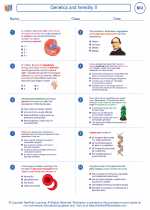 Genetics and heredity II
Genetics and heredity II  Worksheet/Answer key
Worksheet/Answer key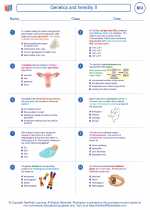 Genetics and heredity II
Genetics and heredity II  Worksheet/Answer key
Worksheet/Answer key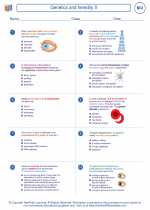 Genetics and heredity II
Genetics and heredity II  Vocabulary/Answer key
Vocabulary/Answer key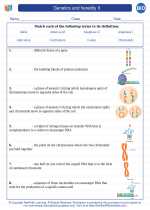 Genetics and heredity II
Genetics and heredity II  Vocabulary/Answer key
Vocabulary/Answer key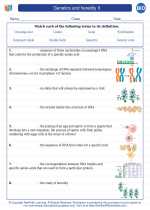 Genetics and heredity II
Genetics and heredity II  Vocabulary/Answer key
Vocabulary/Answer key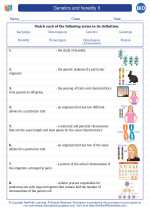 Genetics and heredity II
Genetics and heredity II  Vocabulary/Answer key
Vocabulary/Answer key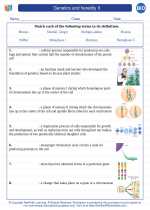 Genetics and heredity II
Genetics and heredity II  Vocabulary/Answer key
Vocabulary/Answer key Genetics and heredity II
Genetics and heredity II  Vocabulary/Answer key
Vocabulary/Answer key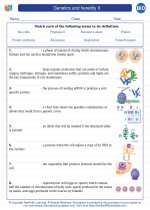 Genetics and heredity II
Genetics and heredity II  Vocabulary/Answer key
Vocabulary/Answer key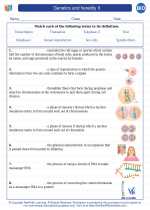 Genetics and heredity II
Genetics and heredity II 

 Worksheet/Answer key
Worksheet/Answer key
 Worksheet/Answer key
Worksheet/Answer key
 Vocabulary/Answer key
Vocabulary/Answer key
 Vocabulary/Answer key
Vocabulary/Answer key
 Vocabulary/Answer key
Vocabulary/Answer key
 Vocabulary/Answer key
Vocabulary/Answer key
 Vocabulary/Answer key
Vocabulary/Answer key
 Vocabulary/Answer key
Vocabulary/Answer key
 Vocabulary/Answer key
Vocabulary/Answer key

The resources above cover the following skills:
LIFE SCIENCE (NGSS)
Heredity: Inheritance and Variation of Traits
Students who demonstrate understanding can:
Ask questions to clarify relationships about the role of DNA and chromosomes in coding the instructions for characteristic traits passed from parents to offspring.